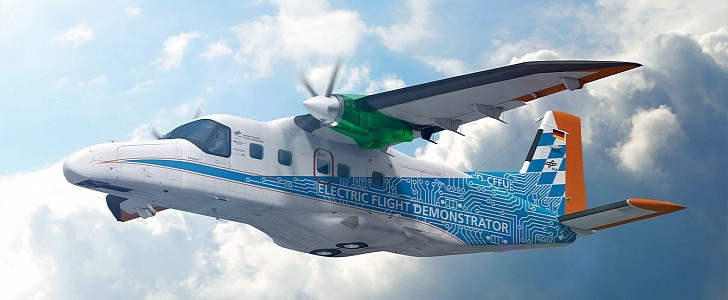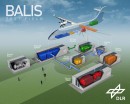While most projects for emissions-free aviation are betting on Sustainable Aviation Fuel (SAF), hydrogen fuel cells are considered, by some, the best solution in the long run. Two major players in the European aerospace industry are gearing up to test a flying fuel cell in the next couple of years.
MTU Aero Engines, the biggest aircraft engine manufacturer in Germany, believes that fuel cells are able to provide enough power and range to become the main propulsion system for sustainable regional flights. Fuel cell technology and sustainably-produced hydrogen are the answer for green aviation, based on the premise that both of these technologies have matured over the past years, thanks to the automotive industry.
In 2020, the company signed an agreement with the German Aerospace Center (DLR), planning to equip a Dornier 228 aircraft with a high-performance fuel cell and a single-sided electric motor with over 500 kW shaft output, and use it as a flight demonstrator for the new technology. In order to achieve that, DLR is building a state-of-the-art test facility, dedicated to the entire hydrogen fuel cell system, including storage and monitoring solutions.
The new DLR facility unfolds over 2,000 square meters (21,527 square feet) in the northern Black Forest and is supported by Germany’s “National Innovation Program for Hydrogen and Fuel Cell Technology.” This is where the two companies will test the future fuel cell powertrain that’s currently being developed.
MTU has taken another important step by launching a partnership with the European Union Aviation Safety Agency (EASA). According to Thomas Frank, MTU’s Head of Quality, flying fuel cells are still “new territory," which is why it’s important to begin talks about safety and regulations at an early stage. Together with EASA, MTU is also researching the future certification of a flying fuel cell (FFC) at the same time as it’s being developed.
The innovative fuel cell powertrain, specifically developed for aviation, is set to begin flight tests in 2026, when the Dornier 228 will take off from DLR’s research airport.
In 2020, the company signed an agreement with the German Aerospace Center (DLR), planning to equip a Dornier 228 aircraft with a high-performance fuel cell and a single-sided electric motor with over 500 kW shaft output, and use it as a flight demonstrator for the new technology. In order to achieve that, DLR is building a state-of-the-art test facility, dedicated to the entire hydrogen fuel cell system, including storage and monitoring solutions.
The new DLR facility unfolds over 2,000 square meters (21,527 square feet) in the northern Black Forest and is supported by Germany’s “National Innovation Program for Hydrogen and Fuel Cell Technology.” This is where the two companies will test the future fuel cell powertrain that’s currently being developed.
MTU has taken another important step by launching a partnership with the European Union Aviation Safety Agency (EASA). According to Thomas Frank, MTU’s Head of Quality, flying fuel cells are still “new territory," which is why it’s important to begin talks about safety and regulations at an early stage. Together with EASA, MTU is also researching the future certification of a flying fuel cell (FFC) at the same time as it’s being developed.
The innovative fuel cell powertrain, specifically developed for aviation, is set to begin flight tests in 2026, when the Dornier 228 will take off from DLR’s research airport.






